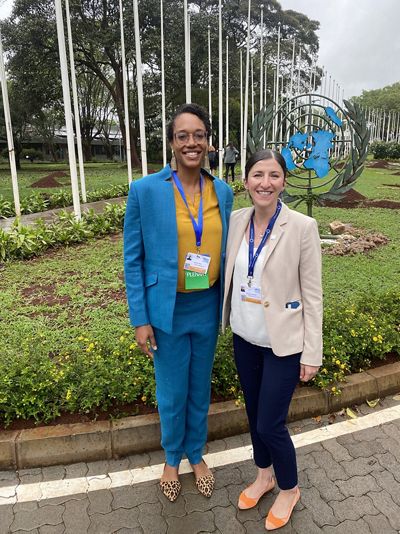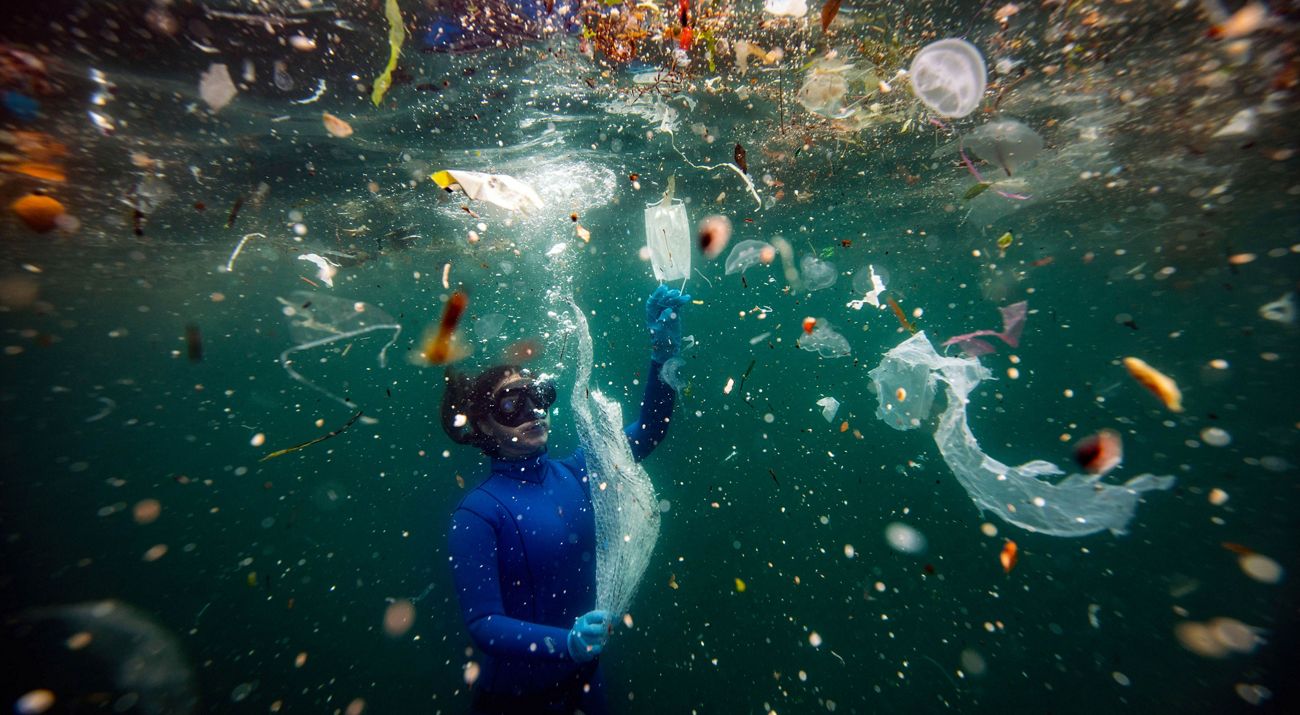Media Contacts
-
Heather Gately
Media Contact
Phone: 773-474-4500
Email: heather.gately@TNC.ORG
Scientists based in and/or work on issues in California—from The Nature Conservancy and Ocean Conservancy—will be traveling to Nairobi, Kenya for the UN environment programme’s third session of the Intergovernmental Negotiating Committee (INC-3) from Nov 13-19. At this session, the following scientists will hold observer status on behalf of their organizations as nations come together for the goal of developing an international legally binding instrument on plastic pollution, including in the marine environment. Interview opportunities are available with:
- Dr. Alexis Jackson, Associate Director of The Nature Conservancy's (TNC) California Oceans Program
- Dr. Anja Brandon, Associate Director of U.S. Plastics Policy at Ocean Conservancy (OC)
Drs. Jackson and Brandon will have access to pre meetings taking place on Nov 11 and 12 as well as negotiations from Nov 13-19, during which a draft treaty with options across a spectrum of ambitions and commitments will be discussed by nations. They will each also provide public comment on behalf of TNC and OC respectively. Both experts were deeply involved in the effort to pass California’s Plastic Pollution Prevention and Packaging Producer Responsibility Act (SB 54), a sweeping plastics-related bill that can provide standards and provisions to scale up at this UN session.
Details on SB 54
In 2022 California positioned itself as one of the global leaders in the battle against plastic pollution with the passage of the Plastic Pollution Prevention and Packaging Producer Responsibility Act (or SB 54). SB 54 requires that all single-use packaging sold in California (primary, secondary, and tertiary packaging) must be recyclable or compostable by 2032 and mandates specific recycling rates for items sold in California. Given the sheer size of California, as the world’s 5th largest economy, and by merits, this now represents the United States’ most ambitious and comprehensive legislation to address single-use plastic packaging and foodware. This legislation, sponsored by state Senator Ben Allen, was built in collaboration with nearly two dozen negotiators, spanning from non-profits like The Nature Conservancy and Ocean Conservancy to local governments, waste haulers, and some of the largest companies using plastic in their packaging. Watch this video featuring Drs. Jackson and Brandon to learn more.
“As a sixth-generation Californian, I am so incredibly proud of the progress that my home state is making to address single-use plastics, as well as to comprehensively mitigate the threat of microplastics. I’m looking forward to elevating the voice of California and other subnational leaders at the global stage during the UN Plastics treaty negotiations. We must work together to leverage existing policy solutions to craft a powerful treaty that marks an end to this environmental, social, and public health crisis! – Dr. Alexis Jackson, The Nature Conservancy, California Chapter
“Local governments around the world have been at the forefront of tackling the plastic pollution crisis head-on. California, for example, has been a leader in passing ambitious environmental policies in the United States – from addressing toxics in packaging materials to passing the first-ever law to mandate a reduction in single-use plastics. But local governments can’t do this alone – we need strong international standards to end the plastics pollution crisis once and for all. As world leaders convene for the next round of plastics treaty negotiations, we hope that negotiators will look to successful and ambitious policies in places like California for inspiration – the health of our ocean and world depend on it.” – Dr. Anja Brandon, Ocean Conservancy

The Nature Conservancy is a global conservation organization dedicated to conserving the lands and waters on which all life depends. Guided by science, we create innovative, on-the-ground solutions to our world’s toughest challenges so that nature and people can thrive together. We are tackling climate change, conserving lands, waters and oceans at an unprecedented scale, providing food and water sustainably and helping make cities more resilient. The Nature Conservancy is working to make a lasting difference around the world in 81 countries and territories (40 by direct conservation impact and 41 through partners) through a collaborative approach that engages local communities, governments, the private sector, and other partners. To learn more, visit nature.org or follow @nature_press on X.
